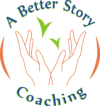Im·pos·tor (noun)
a person who pretends to be someone else in order to deceive others, especially for fraudulent gain.
I was recently approached to be nominated to a committee in my town. When I read the email, my first reaction was of excitement, but then I was attacked by my inner voice, doubting if I have enough experience and knowledge to be part of this group. Thanks to many years of self-examination, I recognized a thinking pattern that shows up often, the infamous impostor syndrome.
The impostor syndrome, also called the impostor phenomenon, is defined as the pattern of doubting one’s abilities beyond healthy introspection. It is the belief that the milestones you have or will accomplish are due to some sort of luck or coincidence and not related to your efforts and qualifications. This thinking pattern is often correlated by experts to perfectionism and is mainly associated with women in the workplace. Nevertheless, although it affects women disproportionately, it is also a pattern experienced by men. Because women, are more aware and willing to speak about it, it is easy to overlook that it is harder for men to recognize and admit their insecurities. Men are socialized to think that doubt is a sign of weakness. The causes for it are also far more extensive and convoluted than the need to seek perfection.
It is not unusual for well-grounded people to evaluate their abilities before embarking on new endeavors. Considering whether one’s swimming skills are good enough before registering for surfing lessons is smart. But what happens when individuals repetitively doubt their natural or acquired abilities and skills? It can become a pattern that prevents them from taking on or enjoying life experiences. Often, those self-doubts have their roots in the messages they receive growing up about what their place in the world is. Gender, education level, social status, place of origin, and race play an important role in what we believe we deserve in life. Even our social circles can influence how we think about ourselves and how far we feel we are allowed to go. Comments like “you have changed,” “you are so lucky,” or more extremely, “so you think you are better than us?” are typical examples of what happens when a person rises above the social circles they were born into. It is not unusual to sense from those around us that beyond the well-meant “we are so proud of you” comments, there is the unspoken judgment, which in turn prevents us from speaking openly about our accomplishments. Additionally, and perhaps more importantly, the social biases we all carry tell us that people with certain skin color, a particular way of speaking, or a certain look are less than. Because they do not conform to the image we have of those with the right to have power, people discriminate and commit microaggressions that influence the way they feel about themselves.
It takes a lot of personal courage and battling unrealistic fears to rise above the belief that you do not deserve what you have or what you are about to accomplish. Here are a few steps to start breaking this pattern:
At the time I write this article, I still do not know if I will make it to the committee I mentioned in the beginning. Nevertheless, I am confident that if I am selected, I have a wealth of knowledge that I have acquired over the years that will make me an exceptional contributor to the group. How about you? What can you accomplish? Which one of all your remarkable talents will you offer to the world today?
For more information, you can contact Ivonne at info@abetterstorycoaching.com
